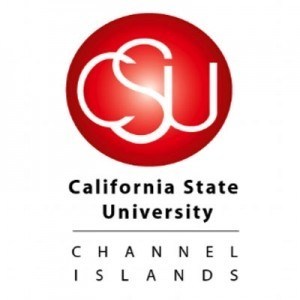Photos of university / #csuci
The Computer Science Concentration at California State University offers students a comprehensive curriculum designed to prepare them for diverse careers in the rapidly evolving field of computing. This program provides a solid foundation in fundamental concepts such as programming, algorithms, computer architecture, and data structures, enabling graduates to address complex technical problems across various industries. Students will engage in rigorous coursework that emphasizes critical thinking, problem-solving skills, and innovative application of technology. The curriculum incorporates both theoretical principles and practical applications, including software development, database management, networking, and cybersecurity, ensuring students are well-equipped for the demands of the modern digital landscape. In addition to core computer science topics, the program offers electives that allow students to specialize further in areas such as artificial intelligence, machine learning, data science, and mobile app development. The program also encourages participation in research projects, internships, and industry collaborations to enhance real-world experience and professional readiness. Faculty members are experts in their fields, providing mentorship and guiding students through their academic and career pathways. Graduates of this concentration are prepared for a variety of roles, including software developer, systems analyst, database administrator, network engineer, or pursuing advanced degrees in computer science or related disciplines. The program’s emphasis on innovation, technical skills, and practical experience aims to foster graduates who can contribute meaningfully to technological advancements and meet the challenges of an increasingly digital world. Whether students seek to enter the workforce directly or continue their education, the Computer Science Concentration at California State University offers a robust, dynamic, and industry-relevant academic experience that aligns with current and future technological trends.
120 unitsSummary of Units:
|
||||||||||||
Lower Division Requirements - 34-35 unitsMATH 150 - Calculus I Units: 4 MATH 151 - Calculus II Units: 4 MATH 230 - Logic and Mathematical Reasoning (Cross-listed as PHIL 230) Units: 3 MATH 240 - Linear Algebra Units: 3 MATH 250 - Calculus III Units: 3 PHYS 200 - General Physics I Units: 4 Select one of the following:PHYS 201 - General Physics II Units: 4 and one additional science course Units: 3-4 or One two-semester science sequence Units: 7-8 Select one of the following:COMP 105 - Computer Programming Introduction Units: 3 COMP 150 - Object-Oriented Programming Units: 4 Select an additional Computer Science course:COMP 150 - Object-Oriented Programming Units: 4 or above or COMP 102 - Web Development Units: 3 Upper Division Requirements - 20 unitsMATH 300 - Discrete Mathematics Units: 3 MATH 331 - History of Mathematics Units: 3 MATH 350 - Differential Equations and Dynamical Systems Units: 3 MATH 351 - Real Analysis Units: 3 MATH 352 - Probability and Statistics Units: 3 MATH 451 - Complex Analysis Units: 3 MATH 499 - Senior Colloquium Units: 1 (Twice) Electives in Major - 9-13 unitsNote: Courses used for the concentrations cannot be counted as elective. Students planning on teaching math have to choose MATH 492 for field experience requirement. Other courses recommended for teaching careers are marked with T. MATH 318 - Mathematics for Secondary School Teachers Units: 3 T MATH 330 - Mathematics and Fine Arts Units: 3 T MATH 345 - Digital Image Processing (Cross-listed as COMP 345, PHYS 345) Units: 3 MATH 354 - Analysis of Algorithms Units: 3 MATH 393 - Abstract Algebra I Units: 3 T MATH 429 - Operations Research Units: 3 MATH 430 - Research Design and Data Analysis Units: 3 MATH 437 - Mathematics for Games, Simulations, and Robotics Units: 3 MATH 438 - Philosophy of Mathematics (Cross-listed as PHIL 438) Units: 3 MATH 445 - Image Analysis and Pattern Recognition (Cross-listed as PHYS 445, COMP 445)Units: 3 MATH 448 - Scientific Computing Units: 3 MATH 450 - Partial Differential Equations and Mathematical Physics Units: 3 MATH 452 - Computational Bioinformatics (Cross-listed as COMP 452) Units: 4 MATH 480 - Differential and Riemannian Geometry Units: 3 MATH 482 - Number Theory and Cryptography Units: 3 T MATH 484 - Algebraic Geometry and Coding Theory Units: 3 MATH 490 - Topics in Modern Mathematics Units: 3 MATH 492 - Internship Units: 1-3 T (Required for teachers) MATH 494 - Independent Research Units: 1-3 MATH 497 - Directed Studies Units: 3 MATH 499 - Senior Colloquium Units: 1 Concentration - 6-10 unitsBy the sophomore year, in order to plan their electives, students should decide on one of the concentrations and take all courses listed in that section. Choice of other concentrations or individualized concentrations is possible upon approval of the mathematics advisor. Computer Science - 9 unitsStudents selecting this concentration should take COMP 150 and COMP 151 for the computer science requirements. MATH 448 - Scientific Computing Units: 3 MATH 354 - Analysis of Algorithms Units: 3 COMP 350 - Introduction to Software Engineering Units: 3 Interdisciplinary GE Course outside major - 3 unitsSelect one interdisciplinary GE Course 3 unitsRecommended: COMP 447 - Societal Issues in Computing Units: 3 COMP 449 - Human-Computer Interaction (Cross-listed as PSY 449) Units: 3 PHYS 434 - Introduction to Biomedical Imaging (Cross-listed as BIOL 434, HLTH 434) Units:4 |
To graduate, students must complete 120 units minimum (40 units must be upper division) including all General Education (GE) and Graduation Requirements . The following areas must be included:
Additional Lower Division A-E (GE) Requirements not met within the major
Nine units of Upper Division Upper Division Interdisciplinary GE (UDIGE), courses are numbered 330-349 and 430-449. Six units may be within the major, 3 units must be outside the major (C or better grade)
Multicultural Requirement (C or better grade)
Language Requirement (C or better grade)
American Institutions Requirement
Free electives as needed to meet minimum units for graduation
Want to improve your English level for admission?
Prepare for the program requirements with English Online by the British Council.
- ✔️ Flexible study schedule
- ✔️ Experienced teachers
- ✔️ Certificate upon completion
📘 Recommended for students with an IELTS level of 6.0 or below.



